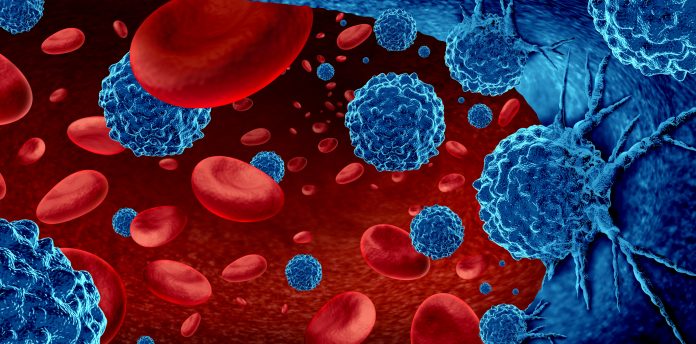Dr Rubina Ahmed, Director of Research, Policy and Services at Blood Cancer UK, explains the urgent need for investment, research, and early diagnosis to beat blood cancer within a generation
Blood cancer affects tens of thousands of people in the UK each year, profoundly impacting patients and their families. In this article, Dr Rubina Ahmed, Director of Research, Policy, and Services at Blood Cancer UK, highlights the challenges, breakthroughs, and urgent need for research, early diagnosis, and community support to beat blood cancer within a generation.
Facing the reality of blood cancer
Every 14 minutes, someone in the UK hears the life-altering words, “You have blood cancer.” That’s around 40,000 people every year, making it the 5th most common cancer in the UK. Sadly, it’s also the 3rd deadliest.
“It takes you to breaking point” are words that will be all too familiar to anyone who’s faced it.
And at Blood Cancer UK, we hear thousands of stories of what blood cancer takes from those living with it and their families.
Stories like Anjna’s, whose daughter Mia’s early childhood was devastated by blood cancer. Simone, who saw a stranger every time she looked in the mirror. Mphango, who was repeatedly misdiagnosed. Or Paul, who was diagnosed as a result of an injury and had to endure gruelling rounds of chemotherapy.
Our community tells us it takes physical strength to face treatment that can last months, sometimes years. For some, it takes emotional strength, waiting to see if treatment is ever needed. It takes courage to endure uncertainty. It takes resilience when your immune system is so vulnerable that even a common cold can be life-threatening. And it takes belief; belief that things can, and will, get better.
At Blood Cancer UK, we know what it takes to beat it thanks to decades of tireless research, much of it fuelled and led by brilliant scientists right here in the UK.
We’ve already made incredible strides. Survival rates for some types of blood cancer have more than doubled since the 1970s. And, more than 9 in 10 children with the most common form of childhood leukaemia now survive.
But this isn’t the full story. Progress has been uneven. While some blood cancers now have more positive outcomes, others lag far behind.
Take acute myeloid leukaemia (AML), a fast-growing blood cancer that still has a five-year survival rate of just 15%. Or myeloma, which is still considered incurable.
What’s more, ethnic minorities are four times more likely to experience delays in referral for a blood cancer diagnosis. And there are more cancer deaths in more deprived populations than in less deprived populations.
For these patients, time is not a luxury they can afford.
A call to action: research, funding, and community
Right now, as I write, during Blood Cancer Awareness Month, we stand at a crossroads. Science has opened doors to personalised medicine, targeted therapies, and immunotherapies; treatments that are more precise and less brutal than chemotherapy. These innovations hold extraordinary promise, but they require significant investment and a strong commitment. We have the knowledge. We need the means.
That’s why, at Blood Cancer UK, we’ve set ourselves a bold ambition: to beat blood cancer within a generation. This isn’t an empty slogan. It’s a serious plan, grounded in research, driven by urgency, and backed by a community that refuses to settle for the status quo. But we can’t do it alone.
We need the government to step up its efforts. Research funding for blood cancer still lags behind other major cancers, despite the disease’s prevalence and impact. Increased investment in clinical trials, laboratory-based research, and early diagnosis is not only necessary but also long overdue. Blood cancer research is a race against time, and every pound invested today could mean a life saved tomorrow.
We need the NHS to be equipped and empowered to provide early diagnosis and fast access to treatments. Too often, blood cancer is missed in its early stages because the symptoms, including fatigue, weight loss, and night sweats, are vague and easily attributed to less serious conditions. This delay can be deadly. More education for healthcare professionals and better diagnostic tools in primary care can help save lives.
And we need you to believe in this cause, to support it, to be part of it. Whether that means donating to research, volunteering, campaigning for change, or simply talking about blood cancer to raise awareness, every action matters.
This isn’t just about statistics. It’s about people like Paul, Mphango, Simone and Mia.
We’ve seen what’s possible when science, policy, and community come together. We saw it during the COVID-19 pandemic, when researchers developed vaccines in record time and the NHS rolled out mass immunisations with remarkable speed.
So, what does it take to beat blood cancer? It takes money. It takes science. It takes grit. It takes all of us pulling in the same direction, refusing to accept that “good enough” is good enough.
At Blood Cancer UK, we’ve been striving to beat this disease for 65 years. We’ve funded more than £500 million in life-saving research. We’ve stood by families through the darkest moments and now we’re asking for you to stand with us.
Let’s not wait another decade. Let’s be the generation that looks back and says, ‘We didn’t just hope for change; we made it happen.’ Because together, we will beat blood cancer.











